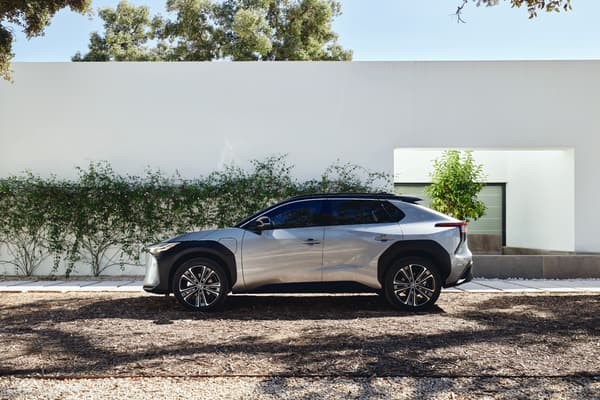Taxi company G7 announced on Tuesday a partnership with Japanese carmaker Toyota to purchase 2,500 battery electric cars by 2030, “an important new step” in its energy transition.
30% electric in 2030
Although today the vast majority of G7 taxis are hybrid cars, the company aims to achieve “a fleet composed of 30% battery electric vehicles by 2030”, compared to the current 3%, he stated, announced in a statement.
To achieve this goal, the G7 has established a “strategic partnership”, but not exclusive, with the number one automobile company in the world, to integrate into its fleet “2,500 new 100% electric Toyota vehicles by 2030,” the company specifies. in the statement. .
A day of work without recharging
The taxi company has set its sights in particular on the bZ4X model, “which is 100% electric and is already available”, but above all it has “an autonomy that will allow us, taxis, to travel 250 kilometers a day that we need,” said G7 Director General Nicolas Rousselet during a meeting with the press.

According to him, a taxi travels an average of between 250 and 300 kilometers a day: the range of the bZ4X ranges between 461 and 513 kilometers depending on the version, which would allow drivers to “recharge energy” only at night.
The conversion to electric batteries “should allow us to maintain strong ambitions in terms of improving air quality”, says Nicolas Rousselet. “This will allow us to achieve 30% lower emissions (CO2) by 2030, while anticipating a growth of our fleet of around 30%,” added Yann Ricordel, deputy director general of the G7.
A financial balance “very favorable to electricity”
Another argument: the financial attractiveness for drivers, compared to thermal vehicles: with “the increase in oil prices”, the “balance in terms of (fuel) consumption is very favorable to electric vehicles”, says Nicolas Rousselet .
Toyota, with whom G7 had already signed a hybrid partnership in 2007, “is committed to providing us with 500 vehicles by 2025,” said the general director of G7, which has 10,000 taxis affiliated to its platform in Paris – around half of Parisian taxis. and 4,500 associated taxi drivers in the provinces.
“It is not an exclusive agreement, if we have offers from manufacturers, why not French, we are the ones who accept them,” said Nicolas Rousselet, who aspires to have an electricity penetration rate “by 2025”, “twice that in the French automobile fleet”. ”.
Source: BFM TV

